10 Key Soft Skills And Their Training Benefits For Career Growth
When people think about career growth, the first thing that comes to mind is technical knowledge or industry expertise. While these matter, they aren’t enough on their own. Many careers stall not because someone lacks technical ability, but because they struggle to work well with others, adapt, or lead.
Soft skills training helps fill that gap. It focuses on communication, teamwork, adaptability, and problem-solving. These skills help you not only succeed in your role but also grow into new opportunities. In today’s workplaces, where collaboration is key, soft skills are often what set you apart.
What Are Soft Skills?
Soft skills are the personal skills you use when dealing with people. They include how you speak, how you listen, how you handle pressure, and how you cooperate with others.
They are less about what you know and more about how you behave in everyday situations. Unlike technical skills that can be measured with tests or certificates, soft skills show up in how people experience working with you.
For example, imagine two job candidates. Both have the same technical qualifications. One can explain ideas clearly, stay calm under pressure, and work well with others. The other struggles to communicate and avoids teamwork. The first candidate is more likely to be hired or promoted because of their stronger soft skills.
10 Key Soft Skills
Communication – The ability to clearly express ideas, listen actively, and adapt your message to different audiences.
Teamwork – Working collaboratively with others, valuing diverse perspectives, and contributing to shared goals.
Adaptability – Staying flexible and effective when facing change, new challenges, or unexpected situations.
Problem-Solving – Identifying challenges, analyzing options, and implementing effective solutions.
Critical Thinking – Evaluating information objectively and making reasoned, logical decisions.
Creativity – Thinking outside the box and generating innovative ideas or approaches.
Emotional Intelligence – Understanding and managing your emotions while empathizing with others.
Leadership – Inspiring, guiding, and motivating others toward achieving common goals.
Conflict Resolution – Managing disagreements constructively to reach fair and positive outcomes.
Time Management – Prioritizing tasks, meeting deadlines, and using time efficiently.
Why Soft Skills Matter for Career Growth
Soft skills are the bridge between technical knowledge and real workplace success. They allow you to use your hard skills effectively and make an impression that lasts.
Here’s why they matter:
Better communication: Clear communication avoids confusion and keeps projects on track. It makes your ideas easier to understand and builds trust.
Stronger teamwork: Teams rely on people who can cooperate and respect differences. Good soft skills make collaboration smoother.
Leadership potential: People follow leaders they can trust. Strong interpersonal skills help you guide, motivate, and support others.
Adaptability: Change is constant at work. Soft skills like flexibility help you adjust quickly without losing focus.
Professional reputation: The way you treat people shapes how they see you. A good reputation opens doors and brings long-term opportunities.
Key Benefits of Soft Skills Training
Soft skills training provides a structured way to practice and improve the qualities that make you effective at work. It helps you grow beyond technical ability and develop the behaviours that drive career success.
Improved Workplace Communication
Training teaches you how to express ideas clearly and how to listen with focus. This reduces misunderstandings and builds stronger connections with colleagues.
Better communication also means you can handle difficult conversations more effectively. Whether it’s giving feedback or resolving a conflict, knowing how to speak and listen makes the process easier.
Stronger Problem-Solving Skills
Soft skills training often involves exercises that encourage creative and critical thinking. These sessions help you look at problems from different angles and find better solutions.
When teams practice problem-solving together, they become more confident in handling challenges. This leads to faster decisions and less wasted time.
Better Conflict Resolution
Workplaces always have disagreements. Training gives you tools to manage them calmly and fairly. Instead of avoiding issues, you learn to face them directly.
By practising conflict resolution, teams reduce tension and build stronger trust. Turning arguments into solutions benefits both relationships and results.
Boosted Confidence And Leadership
Soft skills training builds self-awareness, which increases confidence. When you know how you come across, you can lead with clarity and purpose.
Confidence also helps you step into leadership roles. Even if you’re not a manager, knowing how to guide others and share ideas sets you apart.
Greater Career Opportunities
Employers value people who can work well with others and adapt. Training shows you are serious about growth, which makes you stand out.
These skills also make you more prepared for promotions. The ability to communicate, lead, and solve problems is often what employers look for when choosing leaders.
How Soft Skills Training Works
Soft skills training is different from traditional learning. You don’t just read about concepts—you practice them. Training often involves role-playing, group discussions, and feedback from trainers or peers. The goal is to create real-life situations where you can test and build new habits.
It also combines different approaches. Some training is structured and formal, while others use coaching, mentoring, or ongoing practice. Both formats help people grow, whether in person or online. The debate about virtual vs in-person training shows that both have value, depending on the needs of the group.
Example methods include:
Workshops with interactive activities
One-on-one coaching sessions
Role-playing real workplace scenarios
Online training platforms
Peer feedback and group reflection
Challenges Without Soft Skills Training
Without soft skills training, even the most talented employees can struggle. A lack of focus on these skills creates problems that affect both individuals and organisations.
Poor communication: Misunderstandings slow down projects and damage trust.
Low teamwork: Teams with weak soft skills have more conflicts and less cooperation.
Missed opportunities: People with strong technical skills but weak soft skills are often overlooked for promotions.
Higher stress: Without training, employees may not know how to handle workplace pressure.
Weak leadership: Leaders without strong soft skills fail to inspire and may lose team trust.
Practical Tips To Build Soft Skills
Training helps, but daily practice matters too. Here are a few simple ways to get started:
Practice active listening: Pay attention, don’t interrupt, and repeat back what you heard to confirm understanding.
Ask for feedback: Invite coworkers or managers to share how you can improve.
Join group projects: Working with different people builds adaptability and collaboration.
Reflect often: Spend time reviewing how you handled situations and what you could do better.
Conclusion On Soft Skills Training
Soft skills are no longer optional. They shape how you communicate, solve problems, and lead. Training gives you the chance to practice and grow in areas that directly impact your career. Over time, these skills become part of how you work and how others see you.
At Strengths School, we use approaches based on positive psychology to help leaders, teams, and individuals grow. Whether you’re building a team or working on yourself, we can guide you.
Reach out today to learn more.
Frequently Asked Questions About Soft Skills Training
What Are Examples Of Soft Skills?
Examples include communication, teamwork, problem-solving, adaptability, empathy, and leadership.
Why Are Soft Skills Important For Careers?
They help you work well with others, adapt to change, and build trust, which directly impacts career growth.
Can Soft Skills Really Be Trained?
Yes. With practice, coaching, and reflection, anyone can improve. It works the same way as learning technical skills.
How Do Soft Skills Affect Promotions?
Employers look for people who can lead and communicate. Strong soft skills show you’re ready for more responsibility.
What’s One Soft Skill To Start With?
Start with active listening. It’s simple but makes a big difference in how people respond to you.




